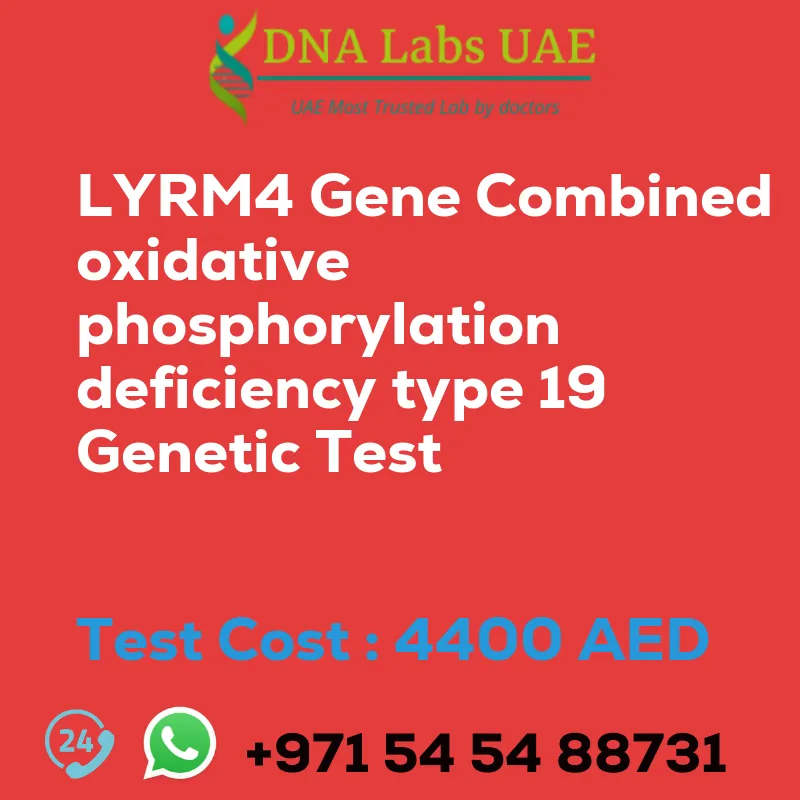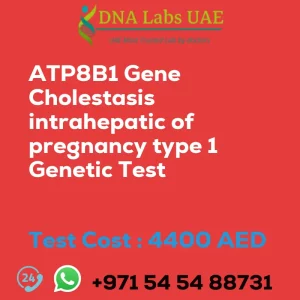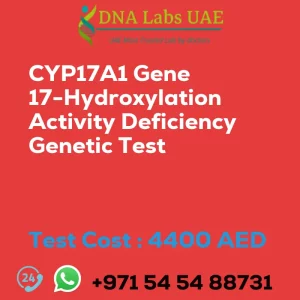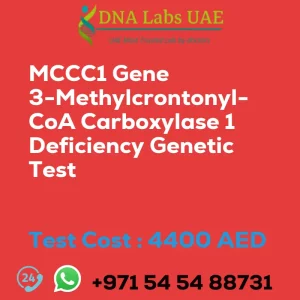LYRM4 Gene Combined oxidative phosphorylation deficiency type 19 Genetic Test
Test Name: LYRM4 Gene Combined oxidative phosphorylation deficiency type 19 Genetic Test
Components: Blood or Extracted DNA or One drop Blood on FTA Card
Price: 4400.0 AED
Sample Condition: Blood or Extracted DNA or One drop Blood on FTA Card
Report Delivery: 3 to 4 Weeks
Method: NGS Technology
Test type: Metabolic Disorders
Doctor: General Physician
Test Department: Genetics
Pre Test Information: Clinical History of Patient who is going for LYRM4 Gene Combined oxidative phosphorylation deficiency type 19 NGS Genetic DNA Test. A Genetic Counselling session to draw a pedigree chart of family members affected with Combined oxidative phosphorylation deficiency type 19.
Test Details
The LYRM4 gene is a gene that is involved in the production of a protein called LYRM4. This protein is important for the function of mitochondria, which are the energy-producing structures within cells.
Combined oxidative phosphorylation deficiency type 19 (COXPD19) is a rare genetic disorder that is caused by mutations in the LYRM4 gene. This condition leads to a deficiency in the oxidative phosphorylation process, which is the main way that cells generate energy.
NGS stands for next-generation sequencing, which is a high-throughput method used to analyze multiple genes simultaneously. A genetic test using NGS technology can be performed to detect mutations in the LYRM4 gene and diagnose COXPD19.
This type of genetic test involves obtaining a DNA sample, typically through a blood or saliva sample, and then sequencing the DNA to identify any mutations or changes in the LYRM4 gene.
The results of the test can help confirm a diagnosis of COXPD19 and provide information about the specific genetic mutation involved. Genetic testing for COXPD19 can be helpful for individuals who have symptoms of the condition, as well as for their family members who may be at risk of inheriting the mutation.
It can also be used for carrier testing in individuals who are planning to have children and want to know if they carry a mutation in the LYRM4 gene.
It’s important to note that genetic testing for COXPD19 should be done under the guidance of a healthcare professional, such as a genetic counselor or geneticist, who can help interpret the results and provide appropriate recommendations and support.
| Test Name | LYRM4 Gene Combined oxidative phosphorylation deficiency type 19 Genetic Test |
|---|---|
| Components | |
| Price | 4400.0 AED |
| Sample Condition | Blood or Extracted DNA or One drop Blood on FTA Card |
| Report Delivery | 3 to 4 Weeks |
| Method | NGS Technology |
| Test type | Metabolic Disorders |
| Doctor | General Physician |
| Test Department: | Genetics |
| Pre Test Information | Clinical History of Patient who is going for LYRM4 Gene Combined oxidative phosphorylation deficiency type 19 NGS Genetic DNA Test A Genetic Counselling session to draw a pedigree chart of family members affected with Combined oxidative phosphorylation deficiency type 19 |
| Test Details |
The LYRM4 gene is a gene that is involved in the production of a protein called LYRM4. This protein is important for the function of mitochondria, which are the energy-producing structures within cells. Combined oxidative phosphorylation deficiency type 19 (COXPD19) is a rare genetic disorder that is caused by mutations in the LYRM4 gene. This condition leads to a deficiency in the oxidative phosphorylation process, which is the main way that cells generate energy. NGS stands for next-generation sequencing, which is a high-throughput method used to analyze multiple genes simultaneously. A genetic test using NGS technology can be performed to detect mutations in the LYRM4 gene and diagnose COXPD19. This type of genetic test involves obtaining a DNA sample, typically through a blood or saliva sample, and then sequencing the DNA to identify any mutations or changes in the LYRM4 gene. The results of the test can help confirm a diagnosis of COXPD19 and provide information about the specific genetic mutation involved. Genetic testing for COXPD19 can be helpful for individuals who have symptoms of the condition, as well as for their family members who may be at risk of inheriting the mutation. It can also be used for carrier testing in individuals who are planning to have children and want to know if they carry a mutation in the LYRM4 gene. It’s important to note that genetic testing for COXPD19 should be done under the guidance of a healthcare professional, such as a genetic counselor or geneticist, who can help interpret the results and provide appropriate recommendations and support. |








